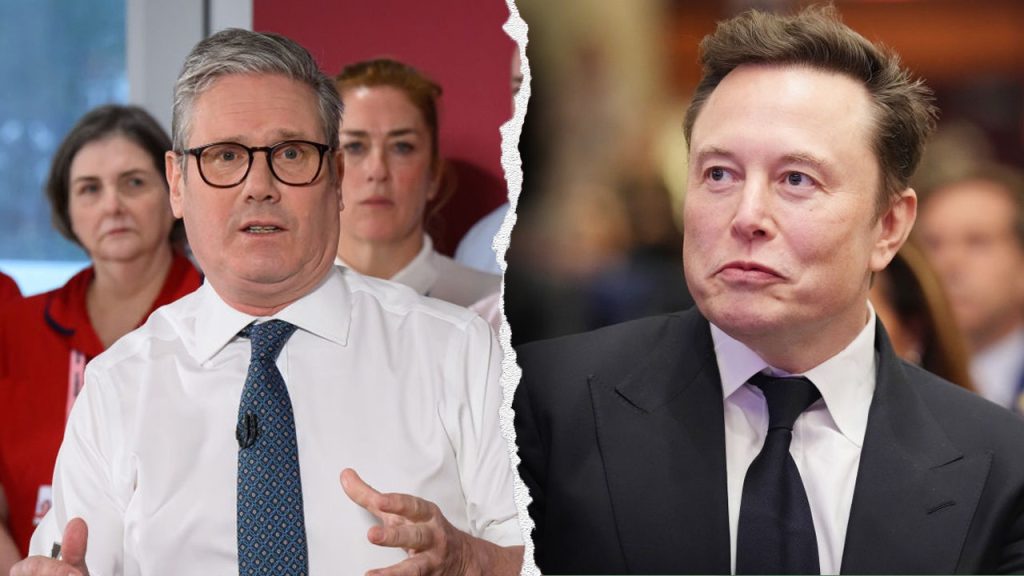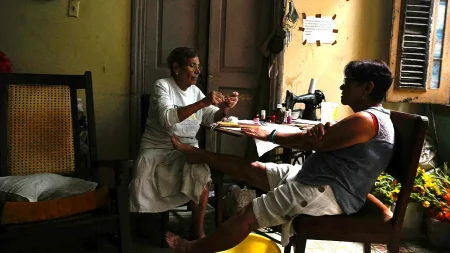The British Parliament rejected a motion on Wednesday to initiate a national inquiry into the pervasive child sexual exploitation scandal, often referred to as the “grooming gang” scandal. This deeply troubling issue involves predominantly Pakistani-heritage men systematically abusing young girls in several northern English towns. The proposed inquiry, presented as an amendment to a children’s well-being and schools bill championed by the Labour government, was defeated by a significant margin. Prime Minister Keir Starmer argued that approving the amendment would effectively kill the overarching bill, prioritizing its passage over a dedicated investigation into the grooming gangs.
The rejection of the national inquiry sparked intense debate, with Conservative Party Leader Kemi Badenoch challenging Starmer’s decision. She argued that the systemic nature of the abuse, involving local and national officials, police, prosecutors, and politicians across multiple towns, necessitates a comprehensive national investigation. Badenoch emphasized that localized inquiries are insufficient to address the interlinked issues and the widespread failures that allowed the abuse to persist for years. She urged Starmer to demonstrate leadership beyond his legal background and prioritize a thorough examination of the scandal’s complex roots.
Previous inquiries into the grooming gang scandal have uncovered horrific levels of abuse, with over 1,400 girls identified as victims in Rotherham alone between 1997 and 2013. These reports also revealed a concerning reluctance among authorities to address the crimes effectively, driven by fears of exacerbating racial tensions given the perpetrators’ ethnic background. The scandal ignited a contentious national conversation about multiculturalism and immigration policies, with accusations of political correctness hindering appropriate responses.
The issue regained significant attention following a local report in Oldham, which, despite finding no evidence of an official cover-up, revealed systemic failures in protecting children. Local officials in Oldham subsequently called for a national inquiry, echoing concerns raised by victims and their advocates. The UK government, however, rejected this request, suggesting local inquiries were more appropriate. This stance was challenged by Conservative Party Leader Kemi Badenoch and, notably, by Elon Musk, who both advocated for a national-level investigation. Badenoch highlighted the extensive suffering of the victims and emphasized that previous inquiries, while important, had not specifically addressed the rape gang scandal.
Elon Musk, leveraging his substantial platform on X (formerly Twitter), has become a vocal advocate for the victims, repeatedly urging the British public to pressure their Members of Parliament for a national inquiry. He even called for the prosecution of senior UK government officials, including Prime Minister Starmer, alleging their complicity in the cover-up. Musk’s involvement has amplified international scrutiny of the scandal, adding to the pressure on the British government to address the issue comprehensively. He argued that without a thorough national investigation and appropriate consequences, these horrific crimes will continue to occur.
Prime Minister Starmer, while acknowledging the seriousness of the grooming gang scandal, has dismissed Musk’s pronouncements as “lies and misinformation,” accusing him and other prominent figures of exploiting the issue for political gain. He has accused some politicians of aligning with the far-right in their advocacy for a national inquiry, portraying their efforts as an attempt to undermine the Labour government’s broader child protection agenda. Starmer urged Parliament to focus on passing the children’s well-being and schools bill, arguing it contained vital provisions to safeguard vulnerable children. He framed the amendment calling for a national inquiry as a cynical political maneuver designed to derail important legislation. The debate surrounding the grooming gang scandal continues to polarize British society, highlighting deep divisions on issues of race, immigration, and government accountability. The rejected amendment, while failing to secure an immediate national inquiry, has undeniably reignited the national conversation about these sensitive issues, placing further pressure on the government to address the systemic failures and ensure the protection of vulnerable children.















